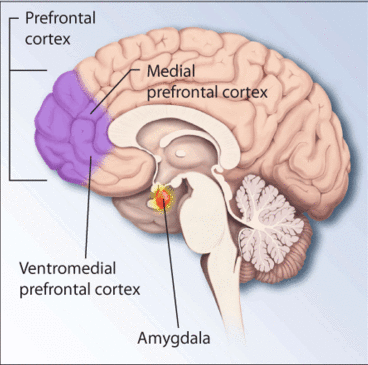0.5 percent of the population suffer from severe PTSD

Trauma-related disorders were previously classified under one single diagnosis—post-traumatic stress disorder. Now, a representative survey carried out by a UZH psychopathologist has shown for the first time how often such disorders present in a more severe form. According to the findings, more than 0.5 percent of people in Germany suffer from complex post-traumatic stress disorder.
Post-traumatic stress disorder (PTSD) can sometimes occur in a particularly severe form, known as complex post-traumatic stress disorder. In both forms of PTSD, patients suffer from an over-activation of the memories of traumatic events in the form of images, smells, and sounds. In complex PTSD, patients also undergo personality changes and have difficulties with interpersonal relationships, in particular suffering from deep-seated mistrust, incapacity for intimacy, and greatly impaired self-worth.
Andreas Maercker, professor of psychopathology at the University of Zurich, together with researchers from Germany, carried out a representative survey. Around 2,500 adults across all age groups from more than 250 places in Germany completed the survey, which included questions about traumatic experiences such as war, rape, childhood sexual abuse, serious accidents, violence, natural disasters, kidnapping, witnessing a traumatic event, or other traumatic experiences. The researchers diagnosed around 0.5 percent of the women and men questioned as having complex PTSD, and 1.5 percent were found to have classic PTSD.
Childhood sexual abuse is the critical factor
"We found that the complex form of PTSD was most often present in people who had experienced sexual abuse in childhood or repeated sexual assaults as adolescents or adults," explains Andreas Maercker. Meanwhile, the more well-known classic form of PTSD was most often reported in people who had had serious accidents or directly witnessed a traumatic event.
The results of Maercker's study are comparable with findings in Central Europe, where complex PTSD has been found to be mainly caused by experiences of sexual violence such as child abuse. "In other regions of the world where it is estimated that there are higher incidences of complex PTSD, causes also include prolonged experience of war, persecution, being held hostage, and torture," adds the UZH professor.
"The creation of the new diagnosis of complex PTSD as distinct from the previously known form of PTSD was necessary because the two disorders require different therapeutic strategies," says Andreas Maercker. While for the classic form of PTSD, often just called "psychological trauma", there are good therapeutic options that can alleviate patients' suffering within several weeks or months, there are still few therapies offering successful outcomes for complex psychological trauma—and further research is required. Academics from UZH are currently involved in studies into complex PTSD in refugees in Switzerland, as well as international studies in partnership with other researchers to look into new therapy options.
In 2013, Andreas Maercker, together with an international working group, made a proposal to the World Health Organization (WHO) to include the additional diagnosis of complex PTSD in the ICD. The disorder will be added to the WHO disorder classification in spring 2018.
More information: Andreas Maercker et al. ICD-11 Prevalence Rates of Posttraumatic Stress Disorder and Complex Posttraumatic Stress Disorder in a German Nationwide Sample, The Journal of Nervous and Mental Disease (2018). DOI: 10.1097/NMD.0000000000000790


















